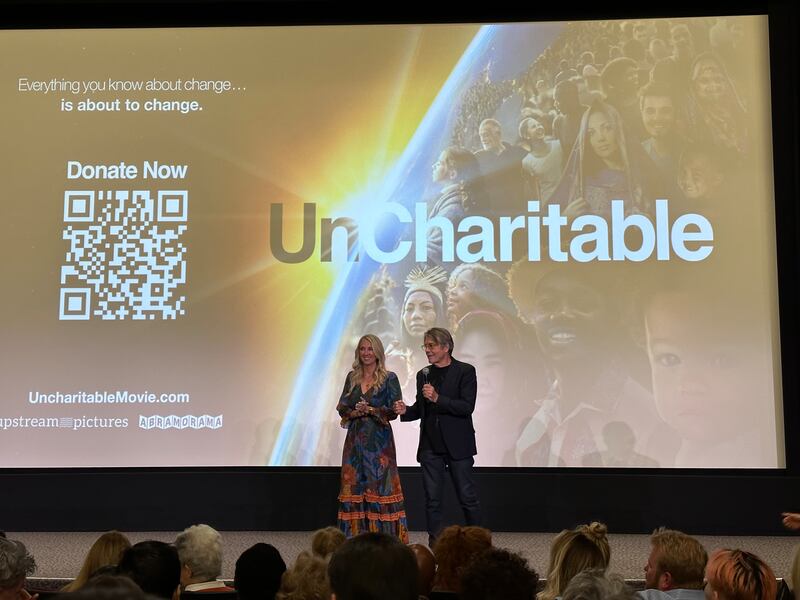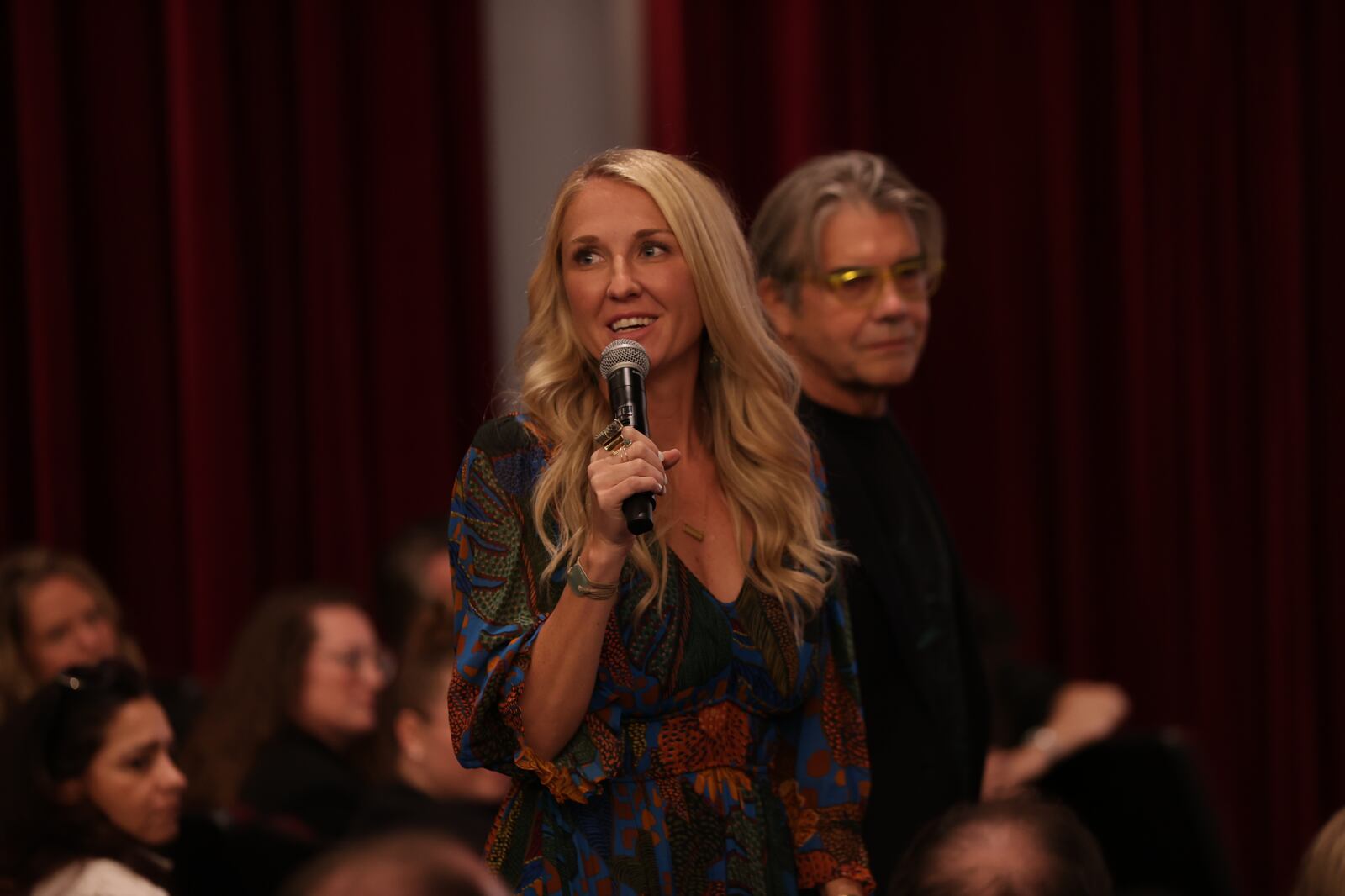This story appears in the March 2025 issue of Utah Business. Subscribe.
Independent filmmakers have long faced obstacles to bringing their stories to audiences. Producing a film takes time and resources, and without a distributor, many projects face a net loss and limited viewership. According to Deadline, Zurich Summit panelists at the 2024 Zurich Film Festival reported that only one out of three indie movies makes money in America. This challenge is exacerbated by the market dominance of streaming services and subsequent consolidation of distributors.
Lindsay Hadley, the founder of Harbor Fund, is working to change that.
“Right now, it’s only a handful of executives that make a lot of the decisions about what gets green-lighted and what gets funded,” Hadley says. “The aim of Harbor Fund is to unlock new capital in a space where the industry is really struggling. We believe there are lots of patrons in the world that have resources sitting in their family foundations and donor-advised funds and can say, ‘I’d like to commission something that speaks to the human soul — something that makes the world better.’”
In the summer of 2024, Harbor Fund became one of the first venture capital-shaped perpetual film funds that is a 501(c)(3). Its mission statement explains that Harbor Fund engages with industry professionals to support productions with charitable purposes, investing “into the equity or debt financing of the films, with any proceeds returned to a self-sustaining, evergreen fund. This capital is then reinvested in new social impact films in perpetuity.”
Hadley realized the potential for Harbor Fund when, after seeing success as executive producer for films such as “Uncharitable,” directed by Stephen Gyllenhaal and featuring Edward Norton, she began getting calls to executive produce more films. As momentum picked up, Hadley connected the dots: Even when spearheaded by megastars, independent projects need funding to come to life.
“I am all in favor of anybody that’s trying to think about how you aggregate capital to support artists making films that are important,” says Geralyn White Dreyfous, Academy Award-winning producer and Utah Film Center and Impact Partners Films co-founder. Dreyfous is among an impressive roster of industry experts — including actor Gerard Butler, British television producer Mark Burnett, and founder of Priceline.com and Booking.com Jeff Hoffman — who serve as Harbor Fund advisory board members.

“Philanthropists have been donating and giving grants to documentaries because documentaries have a social element to it. [The] time has come to leverage philanthropic dollars for feature- and television-like scripted films,” Hadley says.
Dreyfous agrees.
“Great films, when they break out of documentaries into the feature space and have a contribution to make, they make a bigger difference,” Dreyfous says. “I mean, ‘Rain Man’ did more to explain what autism is than any documentary ever could.”
Within five months of becoming a 501(c)(3), Harbor Fund had raised nearly $5 million and deployed it in eight different film productions.
“These smaller indie films and projects that are more cost-based and aren’t as commercially viable end up not getting bought or seen,” Hadley says. “[Harbor Fund is] trying to bring more capital to the table in independently made films [and financially] support films we believe will make the world a better place. It’s amazing the tailwind it’s had and the caliber of people galvanizing around it.”
Hadley describes the fund as a love letter to filmmakers and a way for benefactors to know their support helped bring these stories to life.
“All of us at Harbor Fund genuinely believe that the stories we tell are the most important things we do as human beings,” she continues. “Regardless of how jaded we can become about Hollywood, it is the most powerful PR engine in the world. Our view is to hijack that with benevolent benefactors to tell stories that actually matter [and] make a difference.”
An offer you can’t refuse
After the SAG-AFTRA strike in 2023, Daren Smith — the founder of Craftsman Films and general partner at Producer Fund — wanted to find a better way to make movies. His solution, Producer Fund I, aims to be a $10 million fund that will produce 10 films in the next four years that “change people for good.”
“The film industry is broken. … The studios took too much,” the fund’s thesis statement asserts. “There’s an opportunity to create a better film industry for creators to work in. To make more by taking less. Instead of the studio model, we use our leverage to create better working conditions, more profitable projects, and give equity to the hundreds of artists that work on each of our films.”
The minimum investment amount is $10,000, and the first two projects are slated to begin production later this year.

America’s film set
According to the Utah Film Commission, 47 projects with in-state production ties are set to film and/or release in 2025, including:
- “The Electric State,” starring Chris Pratt, Millie Bobby Brown and Woody Harrelson. This dystopian sci-fi film premieres on Netflix this month.
- The latest Marvel Universe addition “Thunderbolts” — starring Florence Pugh, Sebastian Stan, Julia Louis-Dreyfus and David Harbour — coming to theatres in May.
- “This Was the Place,” described on IMDB as “a visually captivating environmental thriller … exploring the disappearance of the Great Salt Lake through magical realism and a sociopolitical lens.”
- “The Wilderness,” a drama centering on troubled teens attending a Wilderness Therapy program in the Utah desert.

Ready for a road trip?
Visit Utah’s interactive map plots the locations of over 420 films with local ties, including scenes from “Hereditary,” “Napoleon Dynamite,” “National Treasure,” “Mission: Impossible II” and more. Users can filter locations by the top three most popular types of productions: holiday, horror and Sundance Film Festival selections.


